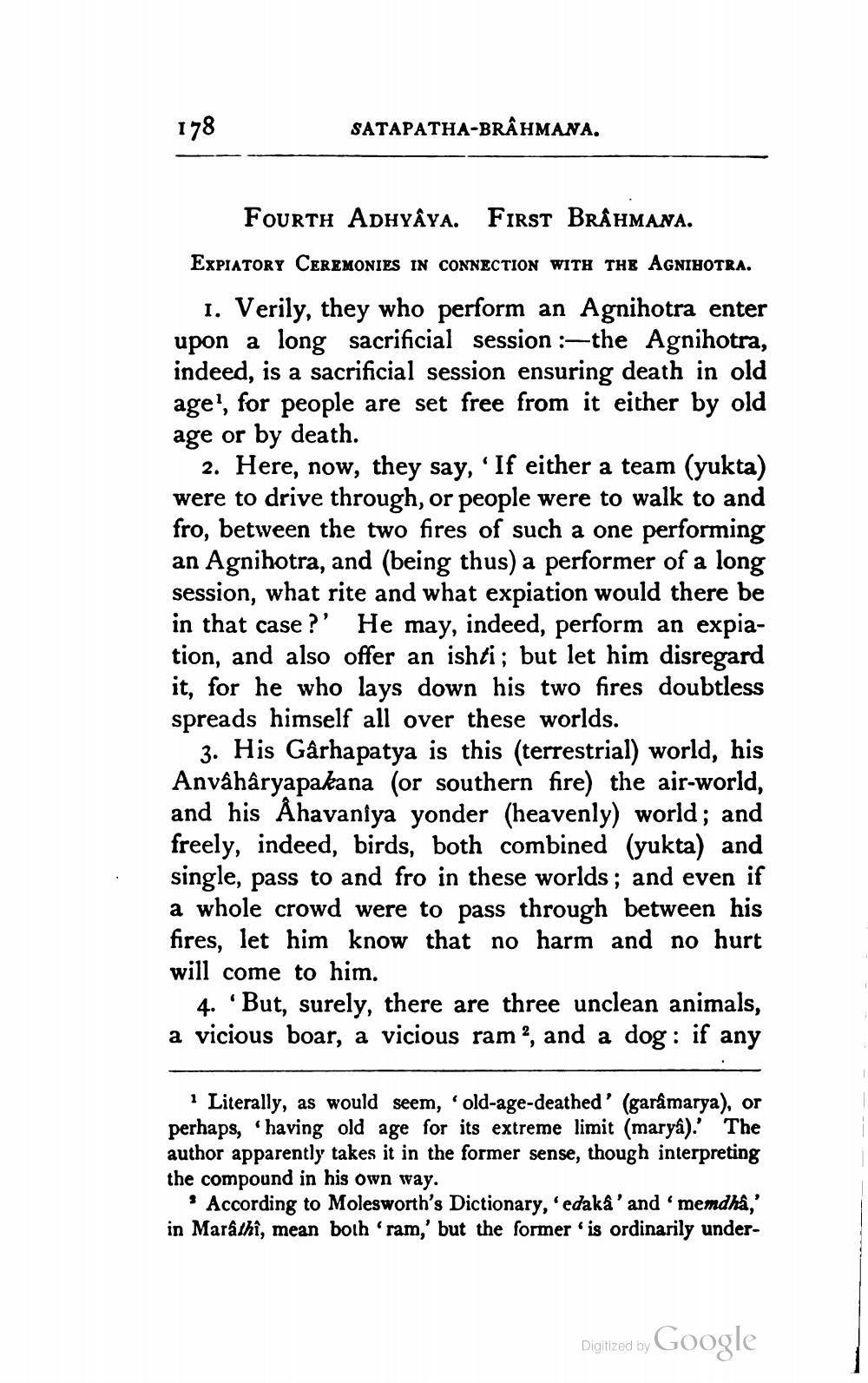________________
178
SATAPATHA-BRAHMANA,
Fourth ADHYÂYA. FIRST BRÂHMANA. EXPIATORY CEREMONIES IN CONNECTION WITH THE AGNIHOTRA.
1. Verily, they who perform an Agnihotra enter upon a long sacrificial session :-the Agnihotra, indeed, is a sacrificial session ensuring death in old age', for people are set free from it either by old age or by death.
2. Here, now, they say, 'If either a team (yukta) were to drive through, or people were to walk to and fro, between the two fires of such a one performing an Agnihotra, and (being thus) a performer of a long session, what rite and what expiation would there be in that case ?' He may, indeed, perform an expiation, and also offer an ishti; but let him disregard it, for he who lays down his two fires doubtless spreads himself all over these worlds.
3. His Gârhapatya is this (terrestrial) world, his Anvâhâryapakana (or southern fire) the air-world, and his Åhavaniya yonder (heavenly) world; and freely, indeed, birds, both combined (yukta) and single, pass to and fro in these worlds; and even if a whole crowd were to pass through between his fires, let him know that no harm and no hurt will come to him.
4. But, surely, there are three unclean animals, a vicious boar, a vicious ram?, and a dog : if any
1 Literally, as would seem, old-age-deathed' (garâmarya), or perhaps,'having old age for its extreme limit (marya).' The author apparently takes it in the former sense, though interpreting the compound in his own way.
According to Molesworth's Dictionary, 'edaka' and 'memdha,' in Marathi, mean both 'ram,' but the former 'is ordinarily under
Digitized by Google




